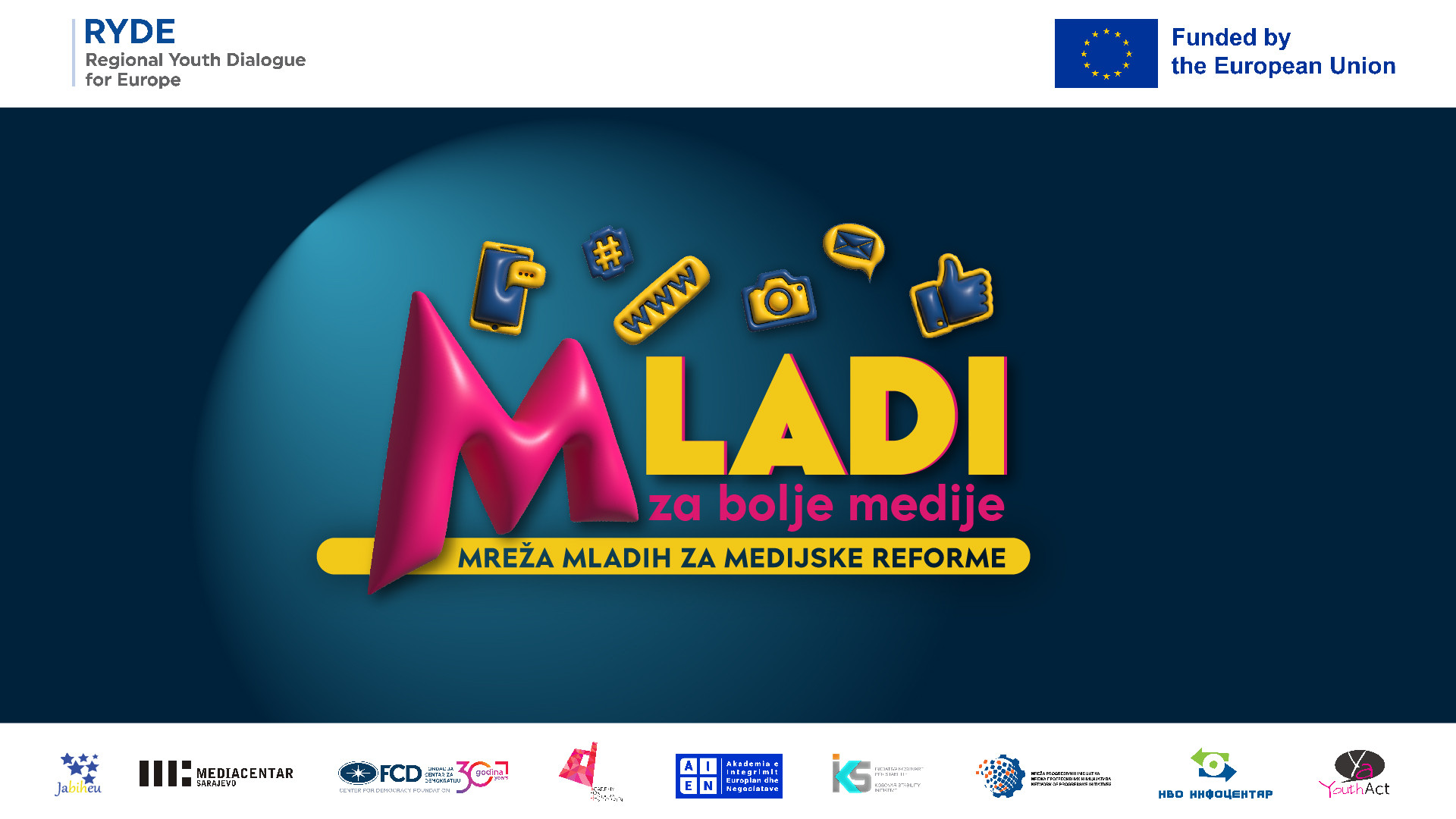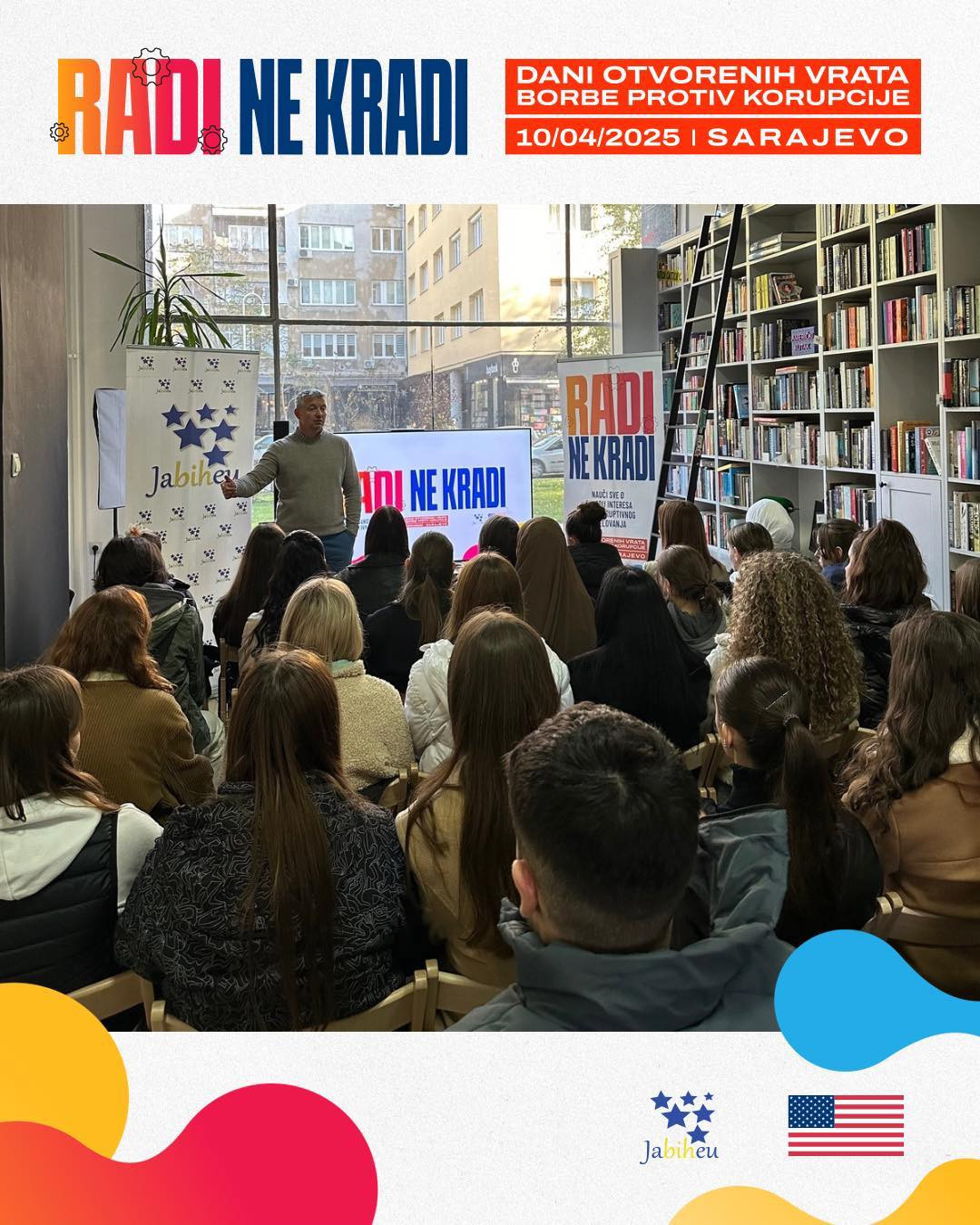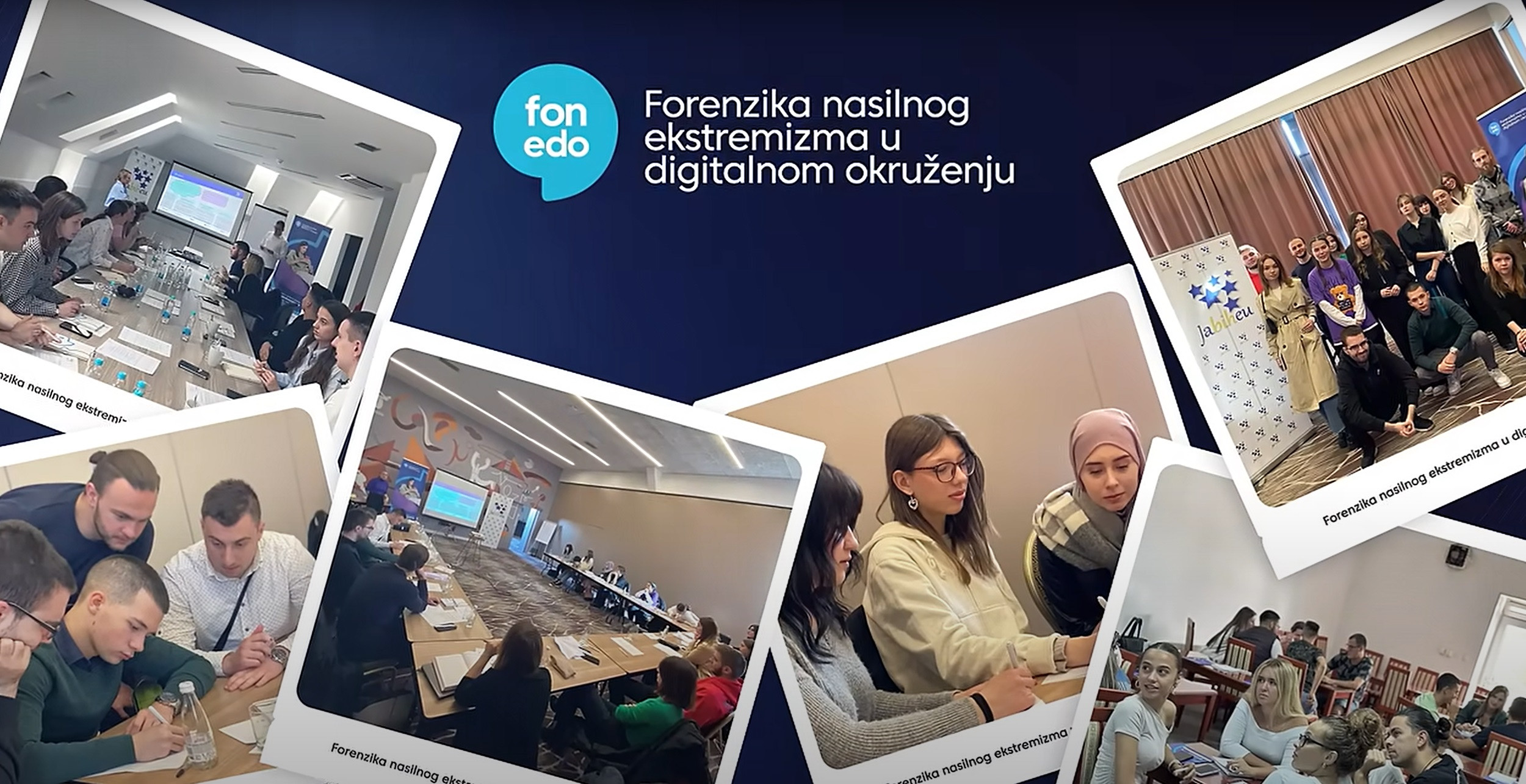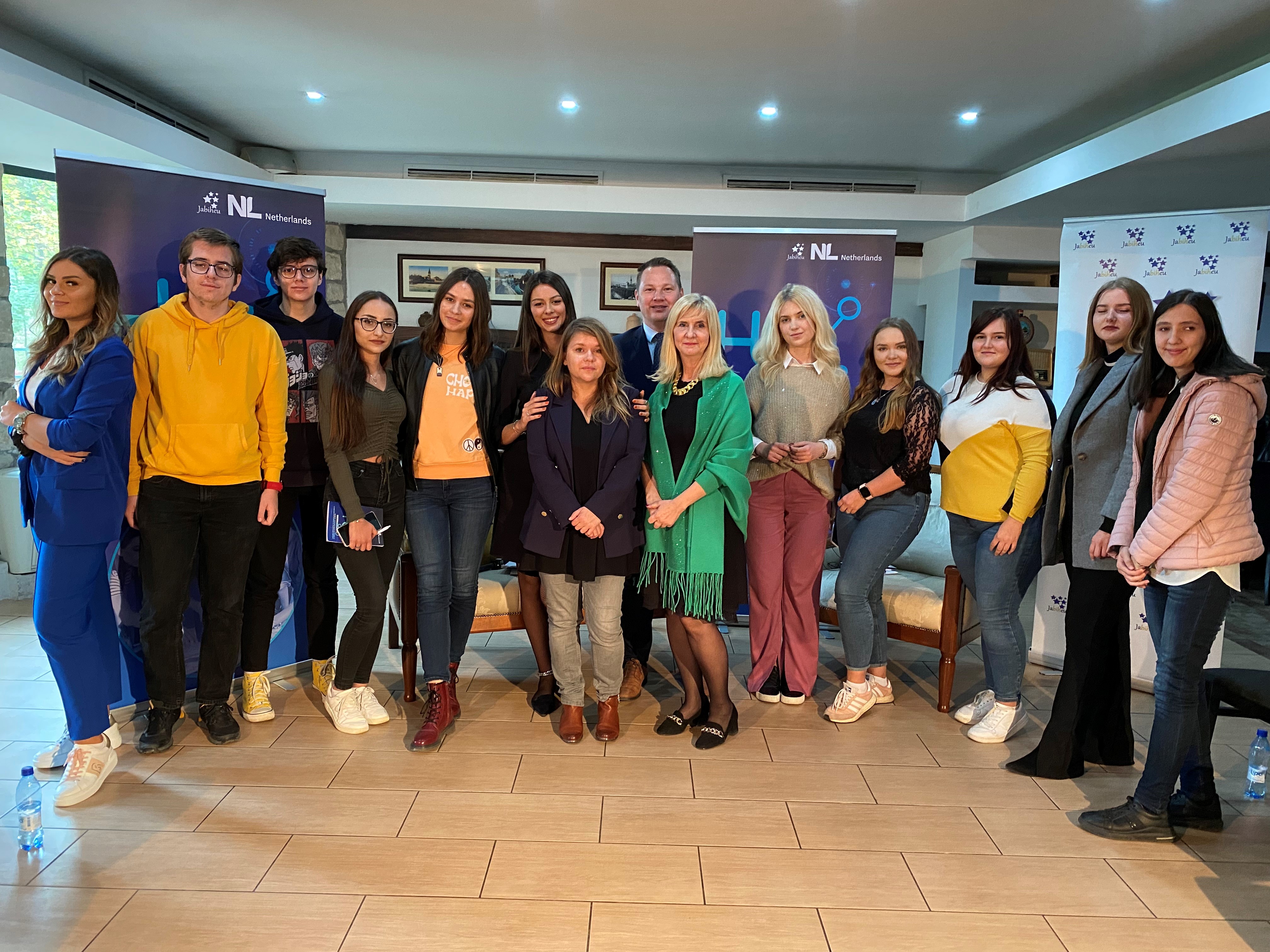
Project YouTHink - Saying NO to Corruption
The project YouTHink - Saying NO to Corruption, which is implemented by the Organisation ‘Ja bih u EU’ and financed by the Embassy of the United States of America in Bosnia and Herzegovina, engages young people and civil society organisations in an innovative way to react to various forms of corruption through direct participation in civic activities and the processes of experiential learning and practice. Our goal is to mobilise young citizens of Bosnia and Herzegovina as allies for future reform in the area of the rule of law and to encourage them to publicly and in increasing numbers to more effectively oppose corruption. After Mostar, where we discussed with young people how corruption affects the lives of young people in Bosnia and Herzegovina and the most common forms of corruption, a panel was held in Banja Luka on the topic ‘Corruption in Education’. The keynote speakers were Borislav Vukojević MA, Senior Assistant at the Faculty of Political Sciences Banja Luka, Sonja Milinčić, from the organisation Perpetuum mobile - Institute for Youth and Community Development and Tamara Gaćanović, a social worker.

Discussion of young people with panelists
Sonja Milinčić stated “Corruption in Bosnia and Herzegovina is widely present in every pore of society and there are not enough good mechanisms to encourage citizens to activism and the fight against this phenomenon. As they say in the media, when we hear a piece of news multiple times it creates an intoxicating dysfunction and we no longer react to that type of information. I think the situation is similar with society in Bosnia and Herzegovina and corruption. It is necessary to wake up the citizens and teach them that much can be achieved through activism.” At the beginning of the panel, an online survey was presented, that the Organisation Ja bih u EU made in preparation for the panel and the Academy for the fight against corruption, which is also part of the project. Tamara Gaćanović shared her personal experiences of recognising and reporting corruption at her college with the young people, thus sending the message to young people that they should not be afraid to report cases of corruption because, as she said, “by changing ourselves we change society.”

Presentations by panelists
A large number of secondary school pupils and students responded to the invitation to attend the panel and they shared their experiences of corrupt activities. Sara Rogić, a panel participant, said “I was lucky that at school our teachers cooperate with non-governmental organisations and support our work and desire for information. However, professors in our schools, in general, do not provide enough information and do not prepare us for life. A big flaw in the school system is that today’s students don’t know who to complain to if they have a problem with corruption; for example, who to turn to for help and how to help children connect and react together.” An extremely large percentage of citizens of Bosnia and Herzegovina are aware of the existence of corruption in various forms, but the overall social climate, unfavourable socioeconomic conditions and the lack of reform in the area of the rule of law make citizens feel generally insecure and powerless in the fight against corruption. Ana Baraković, a panel participant, pointed out “Today’s presentation on corruption taught me a lot. She changed my opinion about a lot of situations that happen in everyday life. Tamara’s story encouraged me to stand up for myself and others in the future.” The panellists sent the message that cooperation with institutions, the academic sector, civil society organisations and young people is extremely important in the fight against corruption.
 BS
BS
 EN
EN






